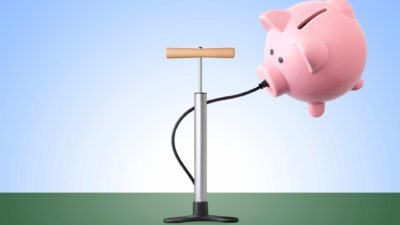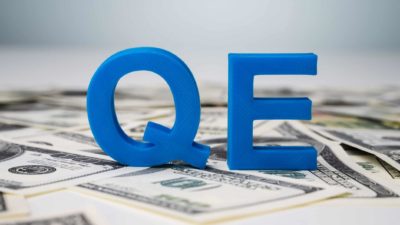Interest rates on hold!
Today, the Reserve Bank of Australia (RBA) kept the cash rate steady at its record low of 0.25%. The RBA normally meets on the first Tuesday of every month to decide the direction of the nation's monetary policy. It can technically either raise, lower or hold interest rates steady. But everyone knew the only real choice of today's meeting would be whether to cut to zero or not.
So even though interest rates are still not quite at their absolute limit, in my view it doesn't really make much difference at the end of the day if the cash rate is at 0.25% or zero.
RBA governor Philip Lowe also flagged that rates will be at record lows for some time, stating, "the Board will not increase the cash rate target until progress is being made towards full employment and it is confident that inflation will be sustainably within the 2–3 per cent target band".
So if low rates are indeed here to stay, here are 3 consequences I see happening for ASX investors.
Low interest rates means cash is no longer king
Cash will continue to be a lousy asset to hold over the long-term. That's because the interest rates that you can expect to receive on cash investments like term deposits and savings accounts won't meaningfully rise unless the RBA lifts interest rates. Thus, we can expect cash to continue to generate very little real return when considering the effects of inflation.
ASX 200 share prices will rise
Low interest rates have an indirect effect on the value of ASX shares. That's because most valuation models use the 'risk-free return' of government bonds to figure out how much a share is worth. If interest rates remain low, so will the yield of government bonds.
Therefore, I expect the value of the S&P/ASX 200 Index (ASX: XJO) to be higher over the medium to long-term than they otherwise would be if interest rates were at more 'normal' levels (although it looks as though this is the new 'normal').
Expect more volatility
As a consequence of the first 2 impacts, I expect volatility to continue to be a feature of the share market while interest rates remain so low.
The fact that there are now very few avenues to building wealth outside the share market means that there will be more capital sloshing around. You will have investors who don't really want to be in ASX shares but simply have no alternative.
As such, I expect higher loss aversion behaviours to be in play. There are going to be a lot of investors who don't want to lose capital and are therefore more likely to sell their investments during natural downturns or corrections in the market.
In my opinion, all of this points to an increased level of volatility in shares going forward – as if we haven't had enough of that this year already!







